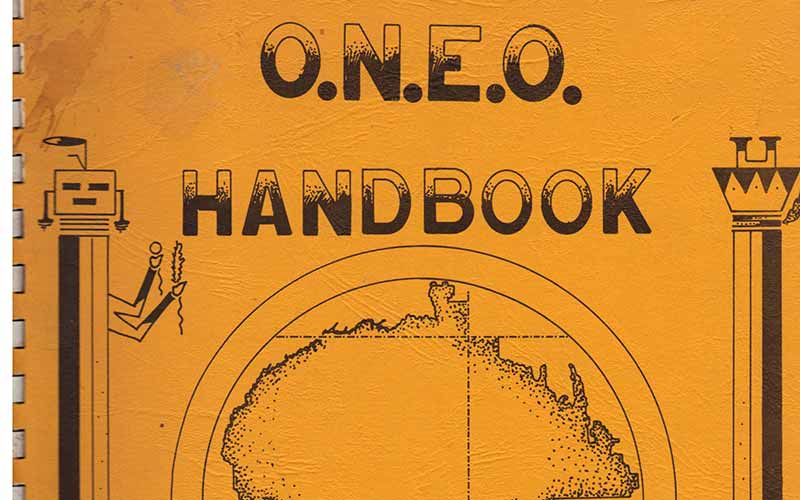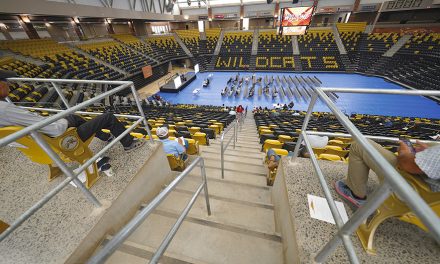
50 years ago: Wauneka, MacDonald grapple over youth grant

A half-century ago, some members of the Navajo Tribal Council and Peter MacDonald were in a fierce battle over Navajo young people.
Both the council and MacDonald’s organization, the Office of Navajo Economic Opportunity, were contesting a million-dollar grant that would allow the funding of a Neighborhood Youth Corps on the reservation.
The advisory committee of the council said the tribe should be the one to run it because they had the contacts with the chapters. But the board of directors for ONEO also passed a resolution saying that ONEO wanted to run it.
By this time in 1966, the dispute had been going on for several weeks and the program, which was supposed to start in early June, was still in limbo as the federal government said it was not going to make a decision on who should run the program — that had to be made by the Navajos.
But federal officials pointed out that each day that the tribe delayed in making a decision, they were losing about $20,000 that could have gone to the students.
The Navajo Tribal Council had just finished a two-month-long spring budget session but did not have time to address this important issue so a special session was called for June 20 just to see if some kind of agreement could be reached.
On one side it was MacDonald, urging that the program be turned over to ONEO. On the other side was Annie Wauneka, probably one of the most powerful members of the tribal council ever. She pointed out that the charter approved by the tribal council for ONEO did not include the summer youth program because these funds came from the U.S. Department of Labor and not the U.S. Office of Economic Development.
The fight had been covered in the Navajo Times for two weeks, with the paper taking the position that it didn’t matter who oversaw the program as long as the two sides stopped fighting so the program could get underway.
Like many disputes that occurred on the Navajo Reservation, each side took shots at the other with Wauneka pointing out that, in her opinion, the ONEO board was not legal since federal law prohibits employees of the organization from sitting on he board. She claimed that three of the board members were employees.
When the matter came up before the council for a vote, the decision — by a 30-29 majority — went in favor of ONEO. Twelve members of the council were absent that day.
The program was then scheduled to get underway on June 30.
Another fight that was going on this week pitted the tribal council against Arizona state officials.
Arizona was trying to enact a provision that would require those who wanted to be registered to vote to take a literacy test, something the tribal government said would disenfranchise several thousand elderly Navajos who had little schooling and spoke little, if any, English.
The county registrars in Apache, Navajo and Coconino counties had been trying to enforce the restrictions. The U. S. Attorney’s Office had originally been opposed but then reached an agreement with the three counties which reinstated the provision.
Since the deadline for registering in the upcoming primary election (set for September 13) was July 8, the tribal council told tribal legal officials to get on the ball and resolve this problem quickly.
And in yet another dispute being played out in the Navajo Times and other local media, chapter officials were up in arms about a recent decision by the tribal council to take away their fee for attending agency council meetings.
Up until that year,chapter officials were paid a fee of $25 for every chapter meeting and agency council meeting they attended. This gave each chapter officials, assuming they attended all the chapter and agency meetings, a stipend of $900 a year.
During the budget session that had just been concluded, the council agreed to increase the stipend from $25 to $30 but to take away the payments for attending the agency council meetings.
It didn’t take chapter officials long to realize that the tribal council was trying to make them believe they got a raise when in fact their annual stipend would remain at $900 and they would be expected to attend the agency council meetings without getting any pay.
The Eastern Navajo Council immediately passed a resolution calling the tribal council to task and saying that they would rather go back to the $25 a chapter meeting and agency council meetings rather then “discontinue the six agency council meetings a year.”
To show how things have changed in the last century, there was a case winding through the federal court system of a Jeddito man who was accused of having sexual relations with an 11-year-old female relative.
Nowadays, the man would have been charged with sexual assault of a minor and face up to life in prison but in those days, at least on Indian reservations, the man was charged with incest and faced one to 10 years in prison.
The victim in this case told a federal grand jury that the relationship was consensual so it was unlikely in those days that the man, if convicted, would be looking at the maximum, according to news reports at the time.
The man was scheduled to go on trial before a federal jury in Prescott on July 27, but instead he took a plea agreement in which the federal prosecutor agreed to a one-year sentence.
Since he had already been in jail waiting trial for almost a year, he would only have to serve a couple more weeks before he would be allowed to return to his home in Jeddito.
To read the full article, pick up your copy of the Navajo Times at your nearest newsstand Thursday mornings!
Are you a digital subscriber? Read the most recent three weeks of stories by logging in to your online account.







 Highway 264,
Highway 264, I-40, WB @ Winslow
I-40, WB @ Winslow